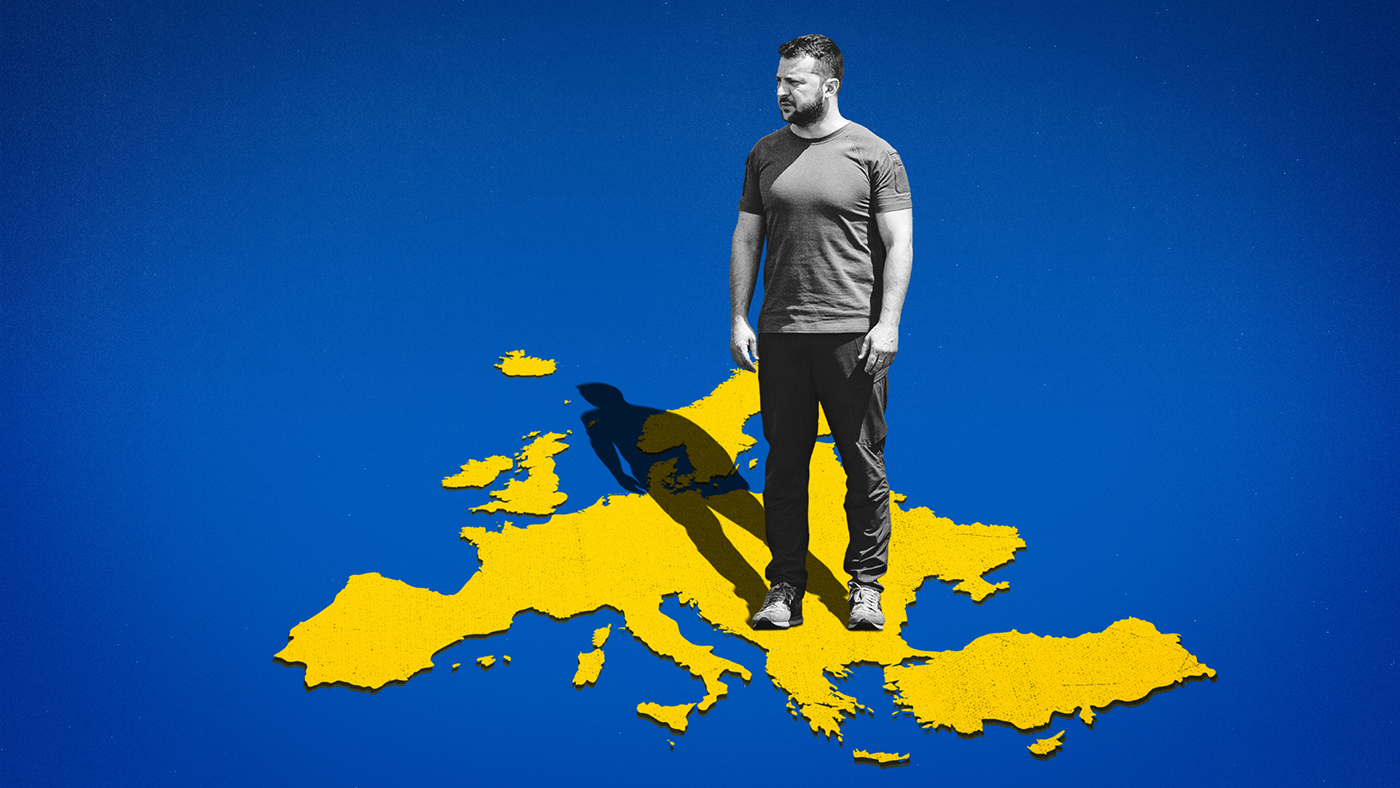‘Protect the NHS is Boris Johnson’s war cry. But protect it from whom?’
Your digest of analysis from the British and international press

- 1. Simply throwing money at the NHS won’t solve all its problems
- 2. From Mark Zuckerberg to the Sackler family, beware the rise of the ‘philanthrocapitalists’
- 3. Antivaxers are the toxic worst of left and right
- 4. Stingy Sunak keeps his wallet firmly closed
- 5. The fluffy evils of Generation Work From Home are a threat to us all
A free daily email with the biggest news stories of the day – and the best features from TheWeek.com
You are now subscribed
Your newsletter sign-up was successful
1. Simply throwing money at the NHS won’t solve all its problems
Simon Jenkins for The Guardian
on challenging health service efficiency
If you follow the news every day, “you might regard Britain’s NHS as a black, swirling pit into which ever vaster sums of money constantly vanish”, says columnist Simon Jenkins in The Guardian. “All it does is answer back with screams of hospitals near collapse, queueing ambulances outside hospitals, year-long waiting lists, postponed tests and staffing crises.” As with all big public service organisations, “value for money” is impossible to measure in the NHS, he continues. For a long time, the NHS has “sought comfort” in hiring management consultants, with millions going to firms “such as McKinsey and Deloitte”. Yet while “vast sums” have been spent “with the supposed aim of saving other sums of money”, says Jenkins, “I know of no estimate that says a penny was worth it”. Challenging a public service to behave efficiently “does not mean challenging its ideological status”, he concludes. “‘Protect the NHS’ is Boris Johnson’s war cry. But protect it from whom?”
The Week
Escape your echo chamber. Get the facts behind the news, plus analysis from multiple perspectives.

Sign up for The Week's Free Newsletters
From our morning news briefing to a weekly Good News Newsletter, get the best of The Week delivered directly to your inbox.
From our morning news briefing to a weekly Good News Newsletter, get the best of The Week delivered directly to your inbox.
2. From Mark Zuckerberg to the Sackler family, beware the rise of the ‘philanthrocapitalists’
Yasmin Alibhai-Brown for the i news site
on ‘vainglory and covetousness’
Former Facebook product manager-turned-whistle-blower Frances Haugen told MPs and peers yesterday that she has evidence allegedly showing that Mark Zuckerberg puts “astronomical profits before people”. Yasmin Alibhai-Brown notes that in 2015, Zuckerberg and his wife Priscilla Chan, who was profiled by The Sunday Times this week, pledged “to give away 99% of their wealth to improve education, health and life chances for the disadvantaged”. Some people were “awestruck”, Alibhai-Brown writes for the i news site, but others saw “vainglory and covetousness”. For multibillionaires such as Zuckerberg and the Sackler family, the US makers of opioid OxyContin, “limitless profits and outrageously luxurious, lavish lifestyles are not enough”, she continues. “Even those who run exploitative businesses or are guilty of massive tax avoidance can transform themselves into caring, sharing saviours.” This so-called “cleansing effect” diverts attention “away from any suspect or unethical practices of their business model or practices”, suggests Alibhai-Brown. “The act of giving gets them a bedazzling halo.”
A free daily email with the biggest news stories of the day – and the best features from TheWeek.com
3. Antivaxers are the toxic worst of left and right
Melanie Phillips for The Times
on an unholy alliance
“Some anxiety about the Covid vaccine is understandable,” concedes Melanie Phillips. “The normal testing programme has been vastly accelerated” and there are “legitimate concerns about civil liberties” regarding vaccine passports. However, she continues in The Times, antivaxers “believe the state is actually trying to poison people with the Covid vaccine”. Phillips argues that “antivaccine hysteria is part of a far wider and deeper phenomenon” that has taken in everyone from “elements on the right” to an “intersection of yoga, juice cleanses, New Age thinking and online theories about secret groups controlling the universe”. This convergence of “the irrationalists on both sides of the political divide” is part of the “desperate flailing around of a post-religious world that’s severed its moral and cultural anchors”. But “when a society abandons reason like this, it ditches its humanity”, she warns.
4. Stingy Sunak keeps his wallet firmly closed
Kate Andrews for The Telegraph
on a tough balancing act
“Spending is easy; fiscal restraint is hard,” writes Kate Andrews, and “that’s not news to Rishi Sunak”. So “as the world economy wakes up after 18 months of intermittent hibernation, far less power lies in the chancellor’s hands”. Writing for The Telegraph, Andrews suggests that the chancellor faces “a tough balancing act”, because he “wants to double down on his call for more fiscal responsibility” yet “also indicate that the government’s Covid safety net remains firmly underneath a recovering economy”. With the “tax hike lever already pulled” by the government, “the chancellor is loath to go much further”, she continues. But a “gaping hole remains between the government’s many pledges to the public and what it can realistically afford, which is unlikely to be filled in this Budget”. Tomorrow’s statement may offer a “clearer picture of how the chancellor wants to square this circle” though.
5. The fluffy evils of Generation Work From Home are a threat to us all
Clemmie Moodie for The Sun
on ‘going soft on workers’
“There’s absolutely no doubt that commuting from bed to a makeshift desk and blobbing along in velour tracksuits and furry slippers all day long is a blissful way to work,” writes Clemmie Moodie for The Sun. But, she continues, “after a couple of weeks, I became lethargic, lazy, unmotivated and yet, perversely, convinced that I was much, much happier WFH”. After four “long” weeks, Moodie went back to the office. She describes how her parents’ grafting inspired her own work ethic: “every morning, without fail, my insomniac dad would rise at 5am and be at work an hour later”. As a “cub showbiz reporter”, Moodie “thought nothing of staying out until 3am, and being at my desk at 10am sharp the next day”. By contrast, many graduates today “believe it is their God-given right to swan into the office on their own terms”, she adds. “There is a creeping generation of entitled workers”, Moodie concludes. “If we keep going soft on workers, eventually we will become soft as a society – capitulating at the first whiff of difficulty.”
-
 How the FCC’s ‘equal time’ rule works
How the FCC’s ‘equal time’ rule worksIn the Spotlight The law is at the heart of the Colbert-CBS conflict
-
 What is the endgame in the DHS shutdown?
What is the endgame in the DHS shutdown?Today’s Big Question Democrats want to rein in ICE’s immigration crackdown
-
 ‘Poor time management isn’t just an inconvenience’
‘Poor time management isn’t just an inconvenience’Instant Opinion Opinion, comment and editorials of the day
-
 ‘Irony’ as Zoom calls staff back to office
‘Irony’ as Zoom calls staff back to officefeature And other stories from the stranger side of life
-
 The U.S. veterinarian shortage crisis
The U.S. veterinarian shortage crisisSpeed Read With an anticipated shortage of 15,000 vets by 2030, it will be harder to get care for pets
-
 Captain Tom charity closes to donations amid daughter’s pool row
Captain Tom charity closes to donations amid daughter’s pool rowSpeed Read Hannah Ingram-Moore to appeal council order to demolish spa complex at her home
-
 Boris Johnson shocks UK by resigning from Parliament
Boris Johnson shocks UK by resigning from ParliamentSpeed Read
-
 Company teaches mask-wearers to smile again
Company teaches mask-wearers to smile againfeature And other stories from the stranger side of life
-
 How fruitful was Zelenskyy’s European tour?
How fruitful was Zelenskyy’s European tour?Today's Big Question Ukraine’s president visits Rome, Berlin, UK and Paris in bid to increase the supply of weapons from allies
-
 Bees delay flight for three hours
Bees delay flight for three hoursfeature And other stories from the stranger side of life
-
 Global happiness has been 'remarkably resilient' over the past three years
Global happiness has been 'remarkably resilient' over the past three yearsfeature